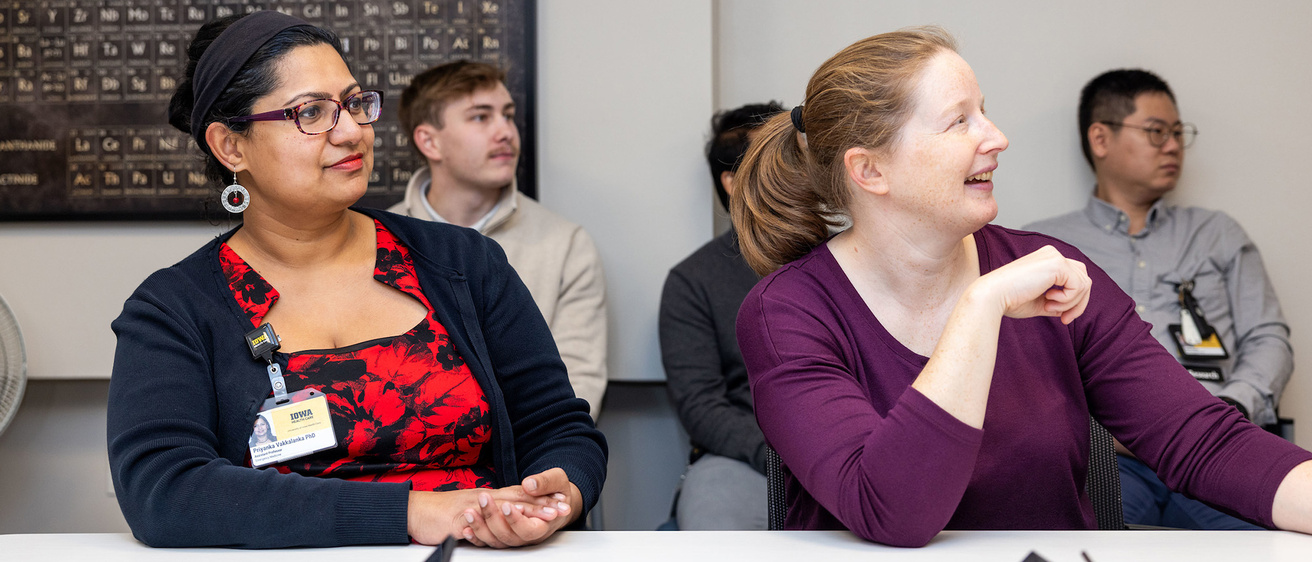Main navigation
Off-Road Vehicle Injury Prevention
The major area of focus for our off-road vehicle injury prevention program are deaths and injuries from all-terrain vehicle (ATV) crashes involving children and teens, riding on public roads, riding with passengers, and occupational use. Our research has recently been expanded to include off-road vehicles called side-by-sides (SxSs).
We conduct epidemiological, community-based educational, and engineering studies to understand risk factors for death and injury and to develop interventions to prevent crashes and injuries that result from use of these off-road vehicles. We also do public policy advocacy and we have developed the only ATV simulator in the U.S. that can study humans on ATVs. Our simulator is used to understand how ATV and rider characteristics contribute to crashes. We work closely with other members of the Iowa ATV Injury Prevention Task Force and with a national coalition advocating against laws allowing ATVs and SxSs on the road.
Research Team Members
- Charles Jennissen, MD
- Gerene Denning, PhD
- Salam Rahmatalla, PhD
- Kristel Wetjen, RN
- Pamela Hoogerwerf
Relevant Links
Sepsis and Emergency Infectious Diseases
Our group focuses on early care of sepsis and other acute presentations of infectious diseases. We led several studies on the epidemiology and effectiveness of COVID-19 vaccination in health care personnel, and we recently completed a clinical trial on duration of antimicrobial therapy in outpatients with pyelonephritis. We are a member of EMERGEncy ID NET EMERGency ID NET—a multicenter network of emergency departments focused on acute care infectious diseases, and through that network we have conducted studies on topics such as Mpox, diverticulitis, appendicitis, and septic arthritis. Most recently, we launched the STANDARD study—a positive deviance study that will be defining robust performance improvement frameworks for hospital sepsis care.
Research Team Members
- Brett Faine, PharmD, MS
- Nicholas Mohr, MD, MS
- Heather Reisinger, PhD
- David Talan, MD
- Kari Harland, MPH
- Anne Zepeski, PharmD, BPS
- Tracy Young, MS
Technology-Enabled Healthcare Delivery
Our group focuses on technology-enabled strategies for improving access to time-sensitive healthcare. We lead the HRSA-funded Rural Telehealth Research Center, a multidisciplinary collaborative center of investigators at the University of Iowa, the University of North Carolina, and the University of Southern Maine dedicated to understanding the role of telehealth at improving the health outcomes for underserved rural communities. We also are working with the MAP-STROKE research group to develop a data-driven prehospital destination selection app to optimize early treatment and recovery for patients with acute stroke. Both of these initiatives demonstrate the ways in which novel application of technology is improving access to time-sensitive healthcare and outcomes.
Research Team Members
- Nicholas Mohr, MD, MS
- Priyanka Vakkalanka, PhD
- Tracy Young, MS
- Marcia Ward, PhD
Interpersonal Violence Prevention and Treatment
Our group studies ways for youth and adults to develop healthy interpersonal relationships skills and we examine the effects of interpersonal violence on individuals. Interpersonal violence is a strong risk factor not only for acute injuries, but also for the development of chronic diseases such as depression and heart disease. We work to develop robust screening programs that can be used in emergency departments and interventions that can be deployed in schools.
Research Team Members
- Kari Harland, MPH, PhD
- Priyanka Vakkalanka, ScM, PhD
Relevant Links
Joint Space Immunology: From Arthritis to Sarcoma
Our group focuses on understanding the how the immune system is regulated in the joint space. We focus primarily on the synovium, the protective sack that surrounds articulating joints and produces synovial fluid. The synovium regulates what cells enter the joint space and when, in settings of inflammation, trauma, infection, and cancer. We are trying to understand how this regulation occurs to prevent damage to the articulating surfaces and preserve long term, pain-free mobility. View more details about our work here.
Research Team Members
- KariAn Mulford, MS
- Katherine "KB" Butler, BS
- Hanna Huston, MS
